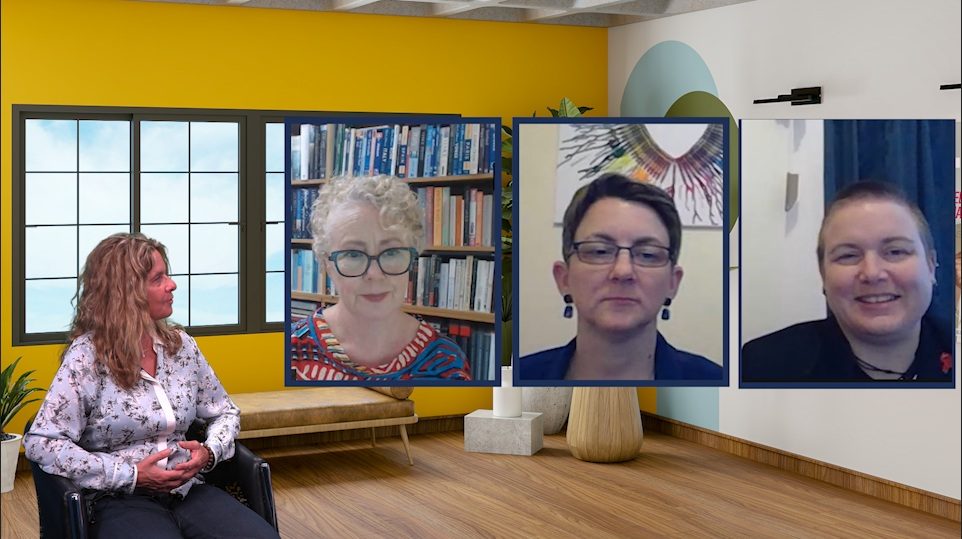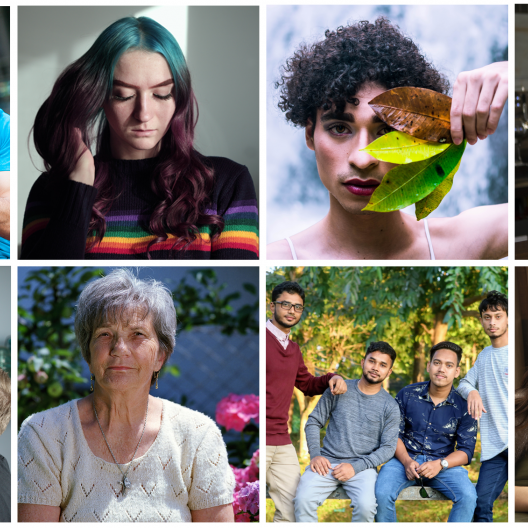
Breast Cancer Network Australia has developed a range of new resources to provide LGBTIQ+ people affected by breast cancer with the information and support they need throughout the different stages of their treatment and care
Despite progress in breast cancer care over the past decades, gaps and inconsistencies in the experiences of treatment and care still exist for many people. Breast Cancer Network Australia (BCNA) is committed to making sure our services are inclusive, welcoming, and safe for members of LGBTIQ+ communities and their support people.
As part of this commitment, BCNA has developed a range of new resources to provide LGBTIQ+ people affected by breast cancer with the information and support they need throughout the different stages of their treatment and care.
The ‘Out with Cancer’ study explored LGBTIQ+ experiences with cancer from the perspective of cancer survivors, their carers and healthcare professionals.
The survey was completed by 422 people with cancer, 131 carers and 357 health professionals. The interviews were conducted and included 103 people with cancer, 31 carers and 48 health professionals.
The LGBTIQ+ survey respondents identified as having a range of different cancers and varied across countries resided, gender, age and sexuality.
48% of LGBTIQ+ participants reported experiencing discrimination during their cancer care, with some healthcare professionals making assumptions or not asking about preferences.
The study explored a range of topics including disclosure – fear and feeling unsafe, the anticipation of negative response following disclosure, fear of the impact on care, negative consequences of non-disclosure and positive experiences of disclosure.
The health professional survey respondents identified varying professions, genders and sexualities.
The survey results explored whether health professionals felt comfortable treating sexuality diverse, trans and gender diverse and patients with intersex variations, with almost half agreeing to this question.
Although when asked about whether they were confident in the healthcare needs of these patients, for intersex variations 44% of health professionals disagreed and for trans and gender diverse patients 29% disagreed.
The development of BCNA’s LGBTIQ+ resources arose from our partnership with the Out with Cancer study, led by Professor Jane Ussher from Western Sydney University.
This study explored LGBTIQ+ experiences with cancer from the perspective of cancer survivors, their carers and healthcare professionals. The study concluded with notable implications for healthcare professionals including the need:
- for awareness and acceptance of LGBTIQ+ people during cancer care
- for further education about LGBTIQ+ experiences and needs
- to not make assumptions around gender and orientation
- to use appropriate language and pronouns and to ask for preferences
- for LGBTIQ+ specific cancer information
- to increase feelings of safety, inclusivity and visibility for LGBTIQ+ people.
BCNA’s new LGBTIQ+ resources include:
- My Journey – 13 new articles providing tailored information and support for LGBTIQ+ communities throughout their breast cancer experience
- Podcasts – two new podcasts:
- LGBTIQ+ Experiences of Breast Cancer and Cancer Care
- Through a Rainbow Lens: Navigating breast cancer as an LGBTIQ+ couple
- Online network – LGBTIQ+ group to connect with each other, ask questions and share advice.
To find out more head to BCNA.ORG.AU or sign up to BCNA’s free resource My Journey at MYJOURNEY.ORG.AU. Also available as an app.




